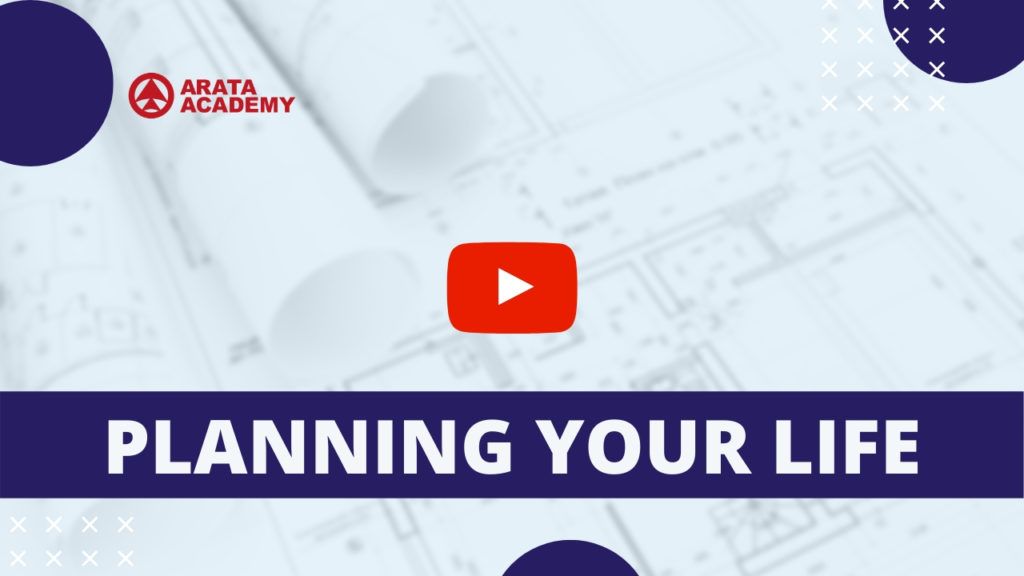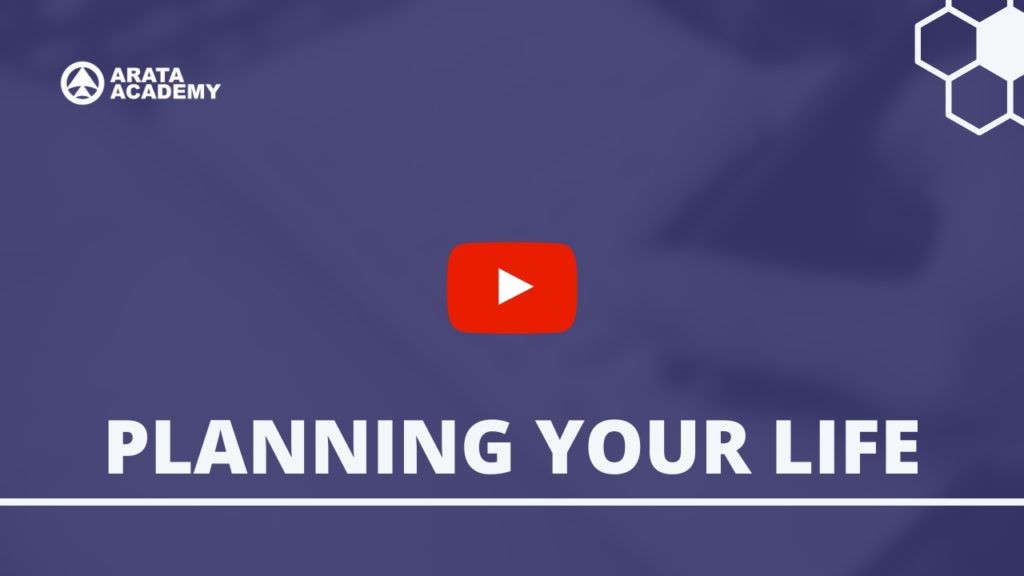Hello! Seiiti Arata. How responsible are you for your own choices? Do we really have free will and the ability to make independent choices? Or is it that determinism rules our future and therefore we are simply the result of the environment in which we live?
Today we will see how Albert Bandura’s theory of human agency puts in our hands the importance of strengthening self-efficacy as a way to have a better future.
One of the important factors that bring down our productivity today is that the whole world seems to be conspiring to make us more and more passive. We have social networks to passively look at photos, streamings with millions of videos to watch passively, endless news to read passively. But do we have an alternative or are we condemned to remain in this passivity?
When we are in this passivity, we are not producing. Therefore, one way to increase your productivity is to stop being a patient and become an agent of your own life, that is, someone who has the power to act.
Human agency is the ability to understand the environment in which we are and to act to change our circumstances. It is the ability to consciously decide what you want for the future, defining clear objectives, planning and executing. And reflect to improve the next steps.
The word agency here is being used not as a bank agency or a travel agency. Agency here means the power to act, not to be a person who is passively consuming information and reacting to demands.
If you feel overwhelmed by the amount of information you consume or the amount of things you have to do without being able to take care of everything, let me show you the four ingredients of human agency that can change this feeling of inability and make you a much more productive person.
The Human Agency theory can be used to increase your self-efficacy with four ingredients: intention, premeditation, action and reflection.
The Human Agency theory has been developed and perfected since 1986 by Stanford professor Albert Bandura. Human agency is your ability to influence your own behavior. It is your ability to change the course of events in your life through your own actions.
This is the opposite of Hippolyte Taine’s theory of determinism, which said that our behavior is pre-established based on factors such as where we live and our past.
Human agency theory does not believe in this predetermined fate. According to human agency, you can visualize the future you want for yourself. And, above all, it can act in the present in a way in which that future becomes reality. To accomplish that, it is necessary to build, evaluate and modify your course of action in order to obtain the results you want, replacing external influences.
I’ll give you an example to make it clearer. Let’s imagine that you want to be a healthier person. You visualize yourself in shape, with a lot of energy, without any health problem. This is the future you want for yourself.
To make that future a reality, you need to act today. You need to eat well, exercise and cure any illness you have. However, in practice, you are not doing any of this. You are eating badly. You are forgetting to go the gym. You are procrastinating instead of going to a doctor to see how your health is.
In addition, people and the environment around them also do not contribute to making this healthy future a reality. Your family members are always buying snacks. Your work only offers sweets, soft drinks and industrialized products for snacks. The gym is far and expensive.
With all this, it is more comfortable to pose as a victim. It is more comfortable to just be saying that I want to have a fit body, than making the effort to act to accomplish that future. The problem is that this comfort now accumulates a series of frustrations that make your life unsatisfactory.
The way out is to evaluate what you are doing. You modify your course of action to get the results you want. It is acting despite all difficulties and external influences. This is done with four ingredients: intention, forethought, action and reflection. Let’s see each one.
First ingredient of the Human Agency: intention. Be clear about what you really want to do.
The first step to stop being passive and start being productive is to have the intention to move from point A to point B. It is to answer a difficult question: what do I want for my life?
To make a transition from being a passive person to strengthening your Human Agency, you will need to act intentionally to do so. You cannot leave your actions to chance, you cannot simply react to external events to see what will happen.
This formation of your intentions needs to include action plans and strategies to carry out these plans. For example, there is no point in saying that you want to be fluent in a new language if you don’t have a plan for it. It is also useless to have a plan if you do not execute that plan.
The actions listed in your plan must be intended to bring you closer to your goal. No action alone will make you jump from the current situation to the desired future. But each one of them will be responsible for taking a step, for bringing you a little closer to where you want to be.
Second ingredient of the Human Agency: premeditation. Set clear goals and anticipate the problems you will face.
Once you make clear what your intention is, the second ingredient in strengthening your human agency is setting goals and anticipating future problems.
Premeditation must be understood as a kind of time travel. You use your imagination to establish exactly what the goal is, what the desired result is. You also use your mind to imagine what problems you will face in order to achieve those goals.
Setting goals and anticipating problems can predict the likely results of your actions. Going back to our initial example: you set the goal of losing five kilos in a month. What problems will you face while working on this goal? What situations will make you leave the diet? Which days will you feel tired to exercise?
The premeditation guides and motivates your efforts in advance, giving coherence to everything you are going to do from now on.
Third ingredient of the Human Agency: action. To stop being someone who just plans, you need self-management.
The only way to turn the future you envisioned into reality is through action. You can have the best intentions in the world, you can set the most perfect goals, you can anticipate all problems … but if you don’t act, none of this will be able to bring practical results to your life.
In order not to be someone who just plans, it is necessary to have a good capacity for self-management and self-motivation. That’s because, when you start executing your plans, you will come across emotional states that can sabotage planning and put everything to waste.
When making a plan, you are acting with reason. You are putting intent on achieving your goals. You are predicting the practical problems that may arise and even thinking about how you will solve these problems.
But on a daily basis, when it comes to executing this plan, the emotion is often stronger than the reason. You planned to go on a diet, to exercise, to take care of your health. But after a stressful day at work, if you are in a bad emotional state, it’s likely you will skip going to the gym and instead stay home and eat a giant pizza in front of the television.
Your plans will only turn into concrete results if you can manage yourself. This is a task for you and no one else. You need to manage your thoughts, be motivated to follow the plan even in times of difficulties and be aware of how your emotions may be sabotaging your planning.
Fourth ingredient of the Human Agency: reflection. Evaluate what you did to keep what’s working and discard what’s not working.
The last ingredient of the Human Agency is reflection. Reflection serves to assess your personal effectiveness, the solidity of your thoughts and actions and the meaning of your activities.
With this assessment, you can change your course of action. The first step is to see what is working, what is coming out according to the plan. These actions must be maintained.
The second step is to evaluate what is not working, what is not being accomplished according to what was planned. These actions need to be rethought. Try a new approach, look for other ways, try to fix what caused that action to fail.
This is a constant process. Be sure to reflect before a very long period has passed. If you have decided to lose five pounds in a month, be sure not to only think about it after thirty days. Instead, assess week by week what is working and what is not.
Intention, premeditation, action and reflection. These are the four ingredients you need to stop being a passive person and strengthen your human agency.
An agent is someone who acts with clarity, who overcomes the difficulties of everyday life and who adapts his own plans according to the results he gets. It is someone who is not a victim of circumstances, who is not complaining about the world, who is not thinking about everything that could have been and that was not.
You have the ability to be someone like that in your hands. All you need to do is put intention into your actions, set goals already anticipating difficulties in a concrete plan, act to execute that plan and reflect on what is working.
For you who want more guidance on how to put together such a plan, I invite you to attend a special class in the Planning Your Life course on personal values. You can access this special class right now by visiting this link.

